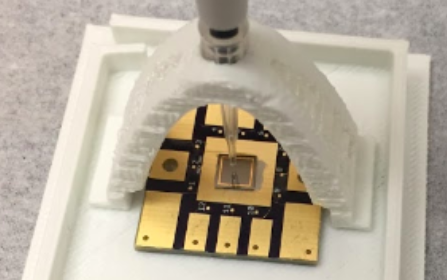

ROME (Remote Orbital Micro Energy) was founded in March 2017.
ROME activities began more than 10 years ago when a research team was formed at the University of Maryland to explore the unique properties of tritium as a potential energy source. The team’s research was later supported by contracts with the Army Research Labs. Following the conclusion of this work, ROME was incorporated in 2017 to provide commercial solutions utilizing tritium as a power source.
ROME’s core competency is in research and development to design, refine, and commercialize next-generation micro-energy solutions using tritium to transform what is possible with today’s electronic devices.
Lithium battery technology has established the dominant market position for rechargeable and short term power life cycle patterns. In contrast, Atomic fuel cells are massively energy-dense, always-on, and offer life cycles in years to decades from a similar button cell form factor. These are micro-power generators and fuel cells, not a simple chemical battery storage device. We are using tritium-based atomic cells that are intrinsically simple to make safely, environmentally inert, and can be packaged in existing small formats for plug-and-play uses. Our 3D atomic cells are up to 8 times more efficient than previous generation 2D flat atomic power cells.
Today there are billions of electronic devices being deployed across the globe in smart homes, cities, streets, buildings, vehicles and more, all part of the Internet of Things (IoT). This spectrum of IoT devices provides a rich marketplace for the innovative use of atomic fuel cells, either by deploying solutions that previously were impractical or unfeasible or dramatically reducing the cost of operations for networks of devices and sensors.
